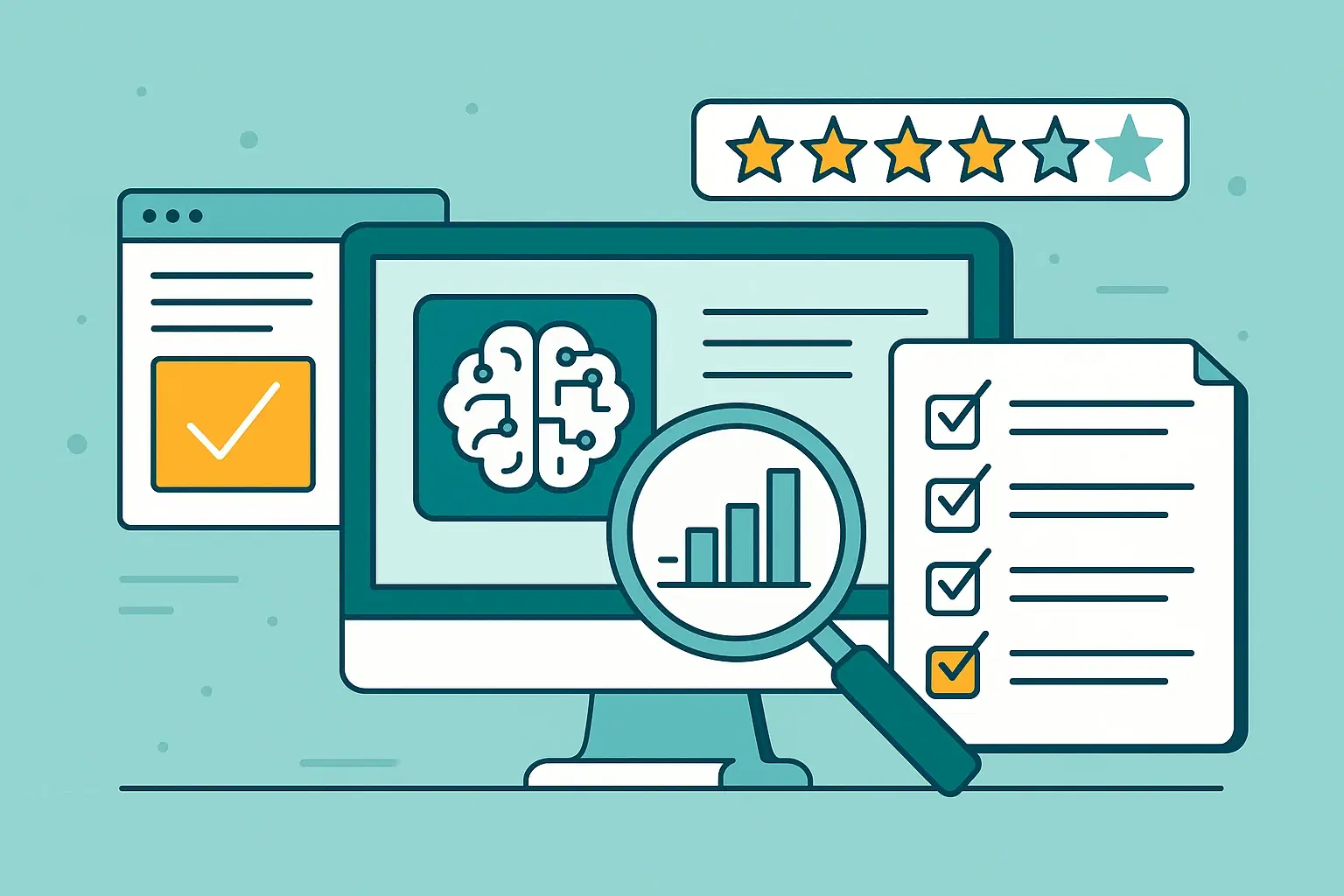
AI Use Cases & RoI
•03 min read
Imagine deploying a generative AI agent into production, only to see its performance falter when real-world conditions set in. As organizations move from proof-of-concept to production-ready AI agents, rigorous evaluation becomes non-negotiable. This post explores why robust validations of AI agents are essential and outlines the frameworks, methods, and key insights necessary to ensure AI agent reliability when deploying generative agents.
Transitioning from experimental generative AI agents to production-ready systems presents unique challenges. In controlled environments, an AI agent may perform as expected. However, scaling these agents for real-world applications requires addressing factors such as unpredictability, increased workload, and maintaining data integrity. Ensuring these systems are resilient and perform consistently is vital. Evaluations guarantee that every step of development is aligned with the operational requirements of modern enterprises.
Neglecting thorough AI agent performance evaluation can lead to issues such as bias amplification, unreliable outputs, or gradual performance degradation. These problems not only affect operational efficiency but also diminish user trust and may hinder organizational growth. Investing in the validation of AI agents is a proactive measure to ensure reliability and long-term success.
When considering production-ready AI agents, tracking key performance indicators is essential. Evaluation metrics such as accuracy, robustness, latency, scalability, and adherence to ethical standards form the foundation of AI agent reliability testing. These KPIs directly align with production demands and help teams gauge whether generative AI agents are ready for deployment in diverse scenarios.
Standard frameworks, including benchmark datasets and adversarial testing methods, enable rigorous validation of generative AI agents. Simulation environments and stress tests ensure that agents are not only functionally sound but also resilient under varying conditions. Using these frameworks simplifies the process of deploying generative agents by addressing potential weaknesses early in the cycle.
Many organizations have reaped the benefits of comprehensive testing before deploying their generative AI solutions. Case studies reveal that companies embracing robust evaluation frameworks experience fewer post-deployment issues and greater overall stability. Conversely, insufficient testing can lead to system failures and costly remedies, highlighting the need for in-depth reliability testing.
Testing ensures that generative AI agents perform consistently, ethically, and efficiently in varied, real-world scenarios.
Validation involves tracking KPIs such as accuracy, scalability, and robustness through benchmark datasets, simulations, and stress tests.
Rigorous evaluations reduce risks like bias, inconsistent outputs, and system failures, ensuring that the deployment meets real-world standards.
Common tools include simulation environments, adversarial testing frameworks, and stress testing methods.
Continuous monitoring detects emerging performance issues and allows teams to adapt agents to changing scenarios, ensuring long-term stability.
Robust evaluations are the cornerstone of deploying production-ready generative AI agents. By understanding the importance of reliability testing, leveraging effective evaluation frameworks, and embracing industry best practices, organizations can transform AI deployment challenges into opportunities for innovation and efficiency. Comprehensive testing enables enterprises to simplify complex transitions, secure their operations, and maintain full control of their AI initiatives. This deep integration of evaluation practices empowers teams to navigate the dynamic landscape of AI confidently.
Stress testing is a crucial step in ensuring that generative AI agents can handle complex and unpredictable scenarios. Replicating real-world conditions during evaluations enables teams to identify performance bottlenecks and potential failure points. By simulating diverse use cases and high-demand environments, organizations can build confidence in the AI systems they deploy.
AI agent performance evaluation is an ongoing process. Post-deployment, continuous monitoring ensures that agents remain robust as conditions evolve over time. Using smart monitoring tools, enterprises can detect issues early and make necessary adjustments, thereby maintaining a stable and reliable deployment.
Insight Corner: The Hidden Cost of Inadequate AI Testing
Did you know that skipping rigorous evaluations of generative AI agents can increase long-term costs by up to 40%? From troubleshooting post-deployment issues to the erosion of user trust, the consequences of inadequate validation far outweigh the initial testing investments.
Successful AI agent performance evaluation is a team effort. Engaging experts from data science, engineering, ethics, and operations creates a holistic view of an application's readiness. This collaborative approach ensures that each perspective is considered when validating AI agents, leading to full-stack solutions that simplify the transition from POC to production.


